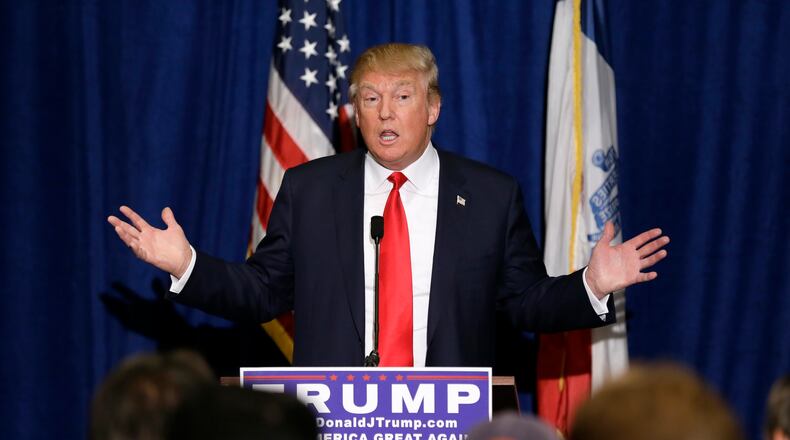Donald Trump pitched a large-scale -- but not revolutionary -- reform of the tax code today, proposing to slash income taxes and consolidate rates to four income brackets.
The top rate under the Republican presidential contender's plan falls from the current 39.6 percent to 25 percent. That rate is for income above $300,000 for joint filers ($150,000 for single filers). The rates go down from there to 20 percent (above $100,000 joint, $50,000 single), 10 percent (above $50,000 joint, $25,000 single) and 0 percent (below $50,000 joint, $25,000 single).
Trump would reduce the corporate rate to 15 percent (from 35 percent) and end the estate tax. Capital gains rates are mostly unchanged, topping out at 20 percent.
The real estate magnate and polling front-runner claims the plan is "revenue neutral" because he gets rid of many exemptions and deductions. But he keeps two of the most expensive deductions: Charitable giving and mortgage interest.
Trump says much of the revenue hole will be partially filled by a one-time 10 percent "repatriation tax" on corporate cash held overseas, which reportedly exceeds $2 trillion that companies do not want to bring back to be taxed at the current high rates. (Some congressional leaders want to use a repatriation holiday now to pay for road construction, though it might actually end up costing the government money in the long run.)
One aspect designed to give Trump credibility for hitting the rich is an end to the "carried interest" loophole that allows hedge fund managers to have their income taxed at the lower capital gains rate. But Trump's new 25 percent top rate is not far off from the 20 percent capital gains rate for top earners.
Said Trump at a news conference at Trump Tower in Manhattan:
"There will be people in the very upper echelons that won't be thrilled with this. ... This is actually a tax reduction, a big tax reduction, including for the upper income. I believe the economy will be doing so well that even though they won't be getting certain deductions, which aren't fair for them to be getting, they will end up doing better."
There were elements of Trumpian flair -- those in the zero percent tax bracket send a form to the IRS saying "I Win" -- but the plan is hardly the tax code revolution many in the Republican base desire.
Georgia Republican U.S. Sens. Johnny Isakson and David Perdue, for example, want to move to a 23 percent standard federal sales tax to replace the income tax, a plan known as the FairTax. Others favor a flat income tax that everyone pays.
Trump's plan is not much different in general structure from former Florida Gov. Jeb Bush's plan, though Trump has lower rates.
Trump pointed out that he is a poster boy for some of his own reforms, as he has stocked "millions" overseas and has utilized tax loopholes. This was because he does not like the way the country's current leadership spends his tax money:
"I pay a lot of tax but I fight like hell to make it as low as possible. But I would feel quite differently if our leadership was such that I respect their decisions."
Shortly after the announcement, Grover Norquist's Americans for Tax Reform gave the plan its blessing.
About the Author
The Latest
Featured



